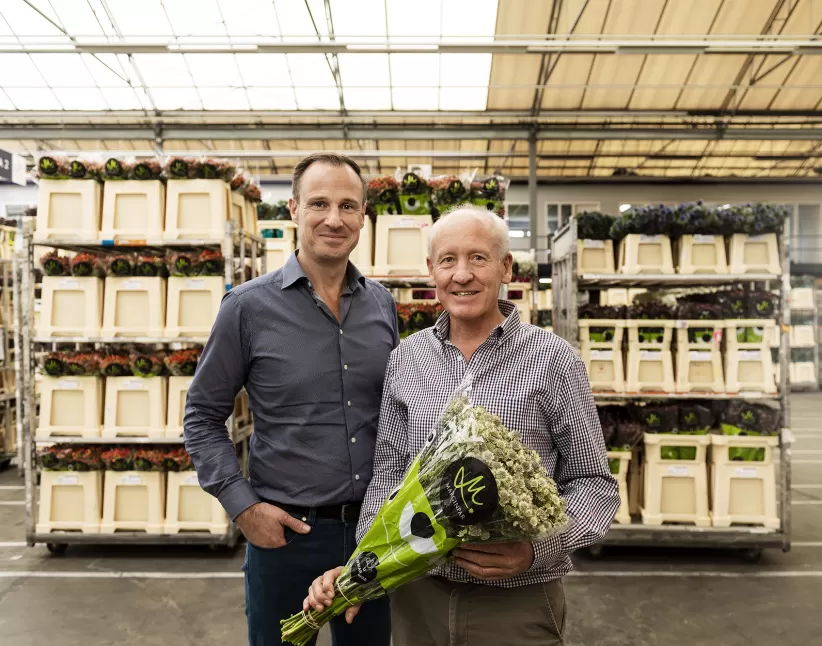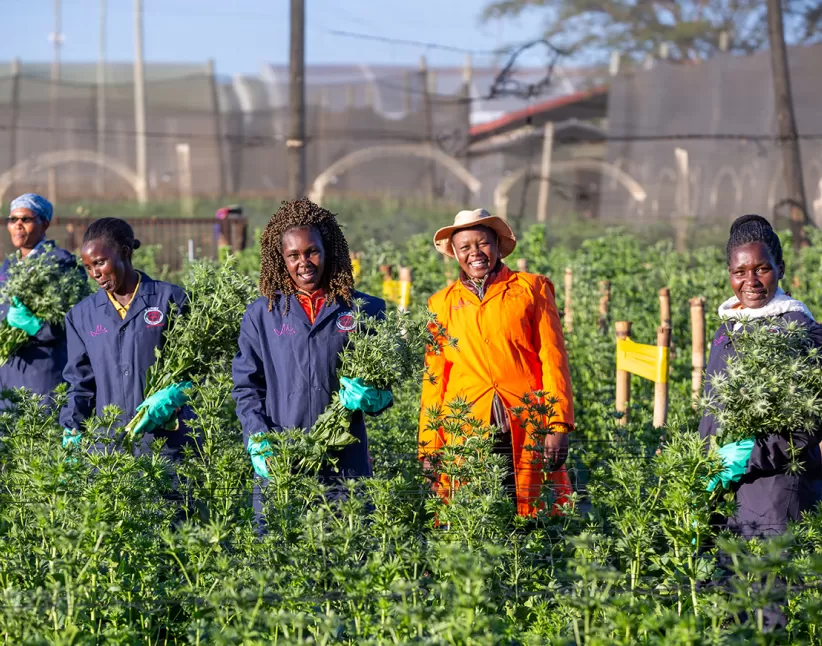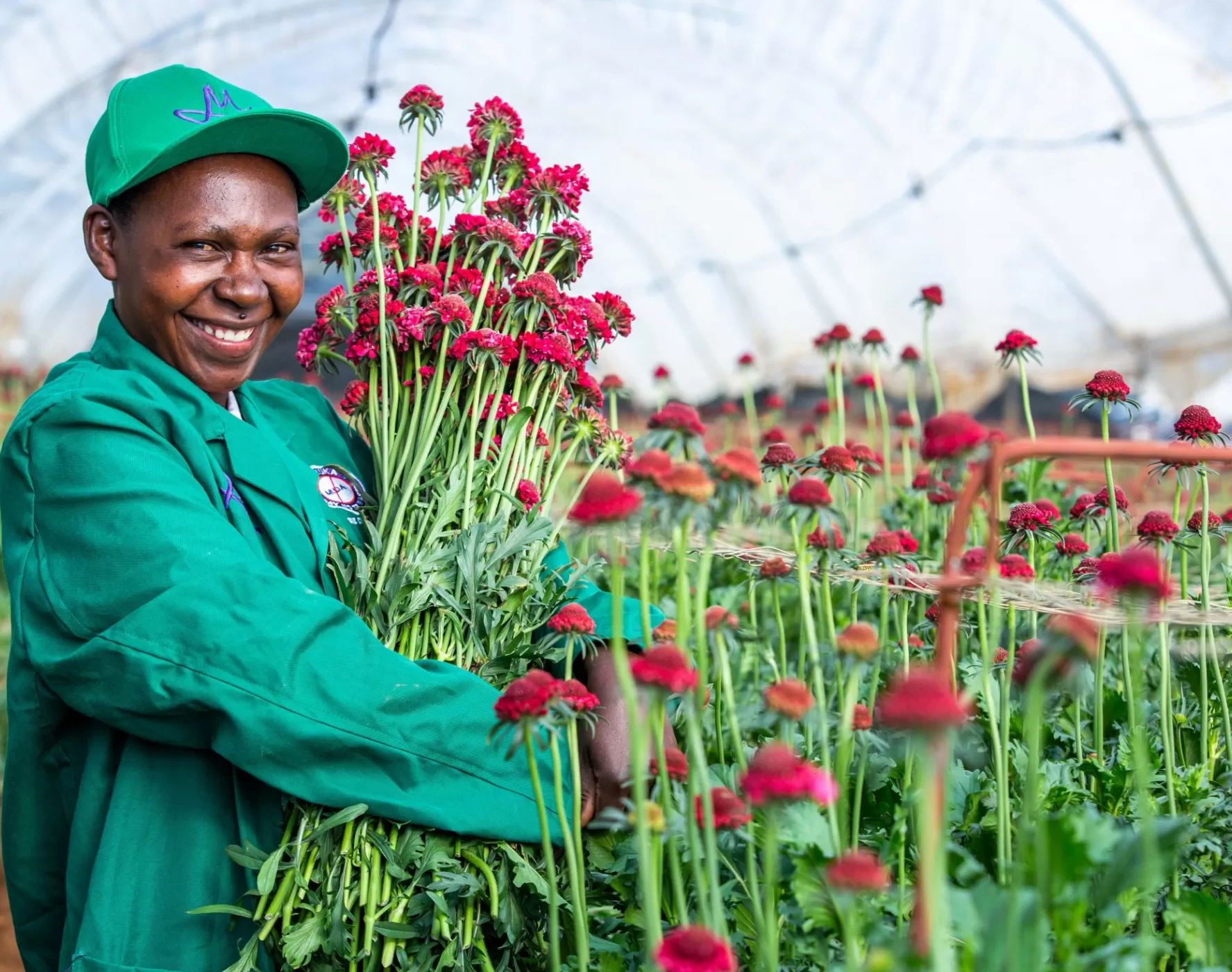
Why people development is so important to us
CEO Rob Koning and co-founder Richard Fernandes share why it's key to the success of our business.
Back to storiesarginpar is known for its people-oriented approach, something that characterised our recent transition process to become one united, international company. After the formal merger in 2018 Marginpar entered into a process of blending the 4,000 people from the five companies in three countries into one, run by the name ‘One World, One Brand, One Aim’. On the occasion of their search for a Group People & Culture Officer, Richard Fernandes (better known as Kiki) and Rob Koning share why they follow this approach, and how a people-oriented business approach contributes to the overall business goals. This article was written by and first published by Nomilk2day.
Where does this people-oriented approach stem from?
Rob: ‘It has always been there; it is in our genes I suppose. When Marginpar was founded by my parents in 1988, they were one of the first to bring fresh-cut flowers from Africa to the Dutch flower auctions. Strategic partnerships between equal partners and strong and healthy collaborations in the chain, have always been a central element. That is also how we started working together with Kiki in Kenya in 2001. This collaboration led to the growth of our five separate businesses and eventually culminated into their merger in 2018.
Kiki: ‘The two of us have always had a people-oriented approach to the way we do business. Values like partnership, teamwork and development of strengths and talents through supporting each other to grow and jointly work for a common interest (like the Marginpar Concept), shall remain key to the success of our business. It might have not always been at the forefront but having analysed our 20-year partnership we realised this to be the common denominator. This we have now formalised into the structure of the merged company.
You talk about the Marginpar culture as one family?
Kiki: ‘In 2019 we initiated a people-oriented transition process to bring everybody involved in Kenya, Ethiopia and the Netherlands under the one umbrella of the Marginpar brand name. We wanted to preserve and secure the characteristic family-like cultures in our businesses once merged. That family theme proved to be similar in all separate cultures despite the (inter)national differences between them, not to mention the dissimilarities between the farms and the various offices also. However, behind everything we found the common thread of family-like culture. We picked this up and built the transition process around it. We refer to this as ‘One World of Marginpar’. Anyone joining our company understands they are expected to be respectful, open-minded and know how to interact with all kinds of family members. To appreciate and support each other and to look for opportunities to improve and develop.
Rob: ‘Central to this transition process, with a new organisational structure also being part of it, is the awareness of running a diverse and complex business. With multiple production companies in four African countries and the global sales and marketing operation in the Netherlands, we supply more than a hundred varieties of summer flowers to the market; quite a challenging operation to manage. This needs a strong collective focus on our goals by everyone involved, as well as clear roles and collaboration lines through which accountability and knowledge flows to the right people at the right time. If you want to be a harmonious family, you have to know who’s doing what and when. We’ve tasked ourselves with ambitious goals.’
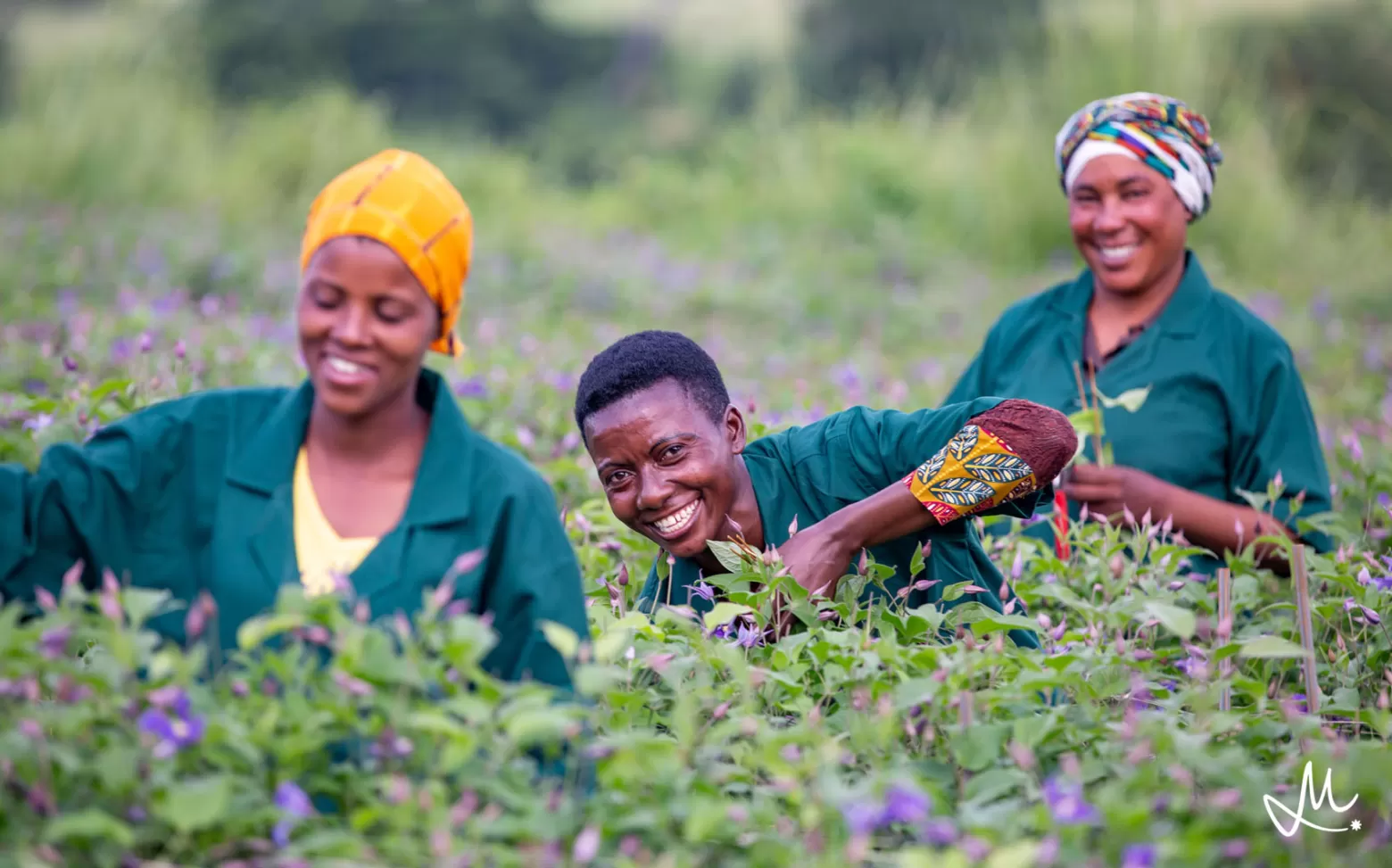
Did changing your market approach at the same time not sound ambitious enough?
Rob: ‘The transition from a push to a pull strategy is ambitious in itself, and we did it simultaneously to the merger because it provided us with the ‘One Aim’ to collectively focus on and strive for. This means we are becoming more customer centric through responding to market trends and offering customers the added value they’re looking for. This creates demand for our exclusive and trendsetting varieties and incentivises us to constantly be on the lookout for unusual flowers that inspire florists and influencers with new ways to use them. So yes, indeed, we have an ambitious drive to be innovative and trendsetting but are also inspired to bring beautiful, unique products to the market.’
Kiki: ‘This is the case all through the company, we were aware it would be a great demand on all of us to create one Marginpar family (One World) and change the market approach (One Aim) at the same time. However, we also knew that when people stand united there’s nothing they can’t do and therefore decided on an integrated approach, in which different work streams were addressed in conjunction, jointly working on them according to a vision we all owned is what united us. This worked very well, and we were on an inspiring, exciting journey when the Covid crisis hit us. This added strain of Covid had its toll on the process, even though the crisis itself was handled extremely well. At the beginning, for example, we asked all our employees on the farms what they thought we should do. Everyone agreed to work half days in April 2019 for half their salary. That wasn’t a top-down proposal. The employees themselves embraced it; they didn’t want to lose their jobs. And ultimately, everyone got paid what they forfeited when we were able to fully return to work. Besides feeling very supported by this, we were also able to retain all our employees and therefore got back up and running faster than companies that had radically reduced their workforce.’
What is the key to the people being so involved?
Rob: ‘We think the key is primarily the family-like culture that has an emphasis on looking out for each other and developing together. We are used to involving the people in decisions, we request their input, offer them responsibilities they are able to take and give room and support to grow their talents. In the past years we started to educate our leaders in a more structured way to facilitate the development of their teams for example. At the same time, we tooled the teams to improve on communication and collaboration. It is things like this that give people the confidence that we care about them; they are intrinsically part of Marginpar and this gives them a sense of belonging which results in a shared awareness of responsibility.
Kiki: ‘It is specifically this type of education and support mentioned that we want to embed into the company more structurally. We are currently strengthening and partly building our People & Culture department (Cluster as we call it) within which the Talent Development domain will provide for continuous learning in a uniform and sustainable way. Team collaboration, leadership, communication, personal and professional development of skills will naturally be part of its curriculum. As will the core knowledge of our business: how to grow exclusive flowers! We are convinced this will help create a sustainable and profitable business.’
How does the Kaizen methodology tie into this?
Rob: ‘In Kenya we’ve been working according to the Kaizen principles since 2012. The methodology is focused on the continuous improvement of standardised business processes. It challenges one to think carefully about each step of a work process. If needed, an employee will then choose a structured approach to optimise that process. Additional benefit is that this way of working is also taken home, to the communities. To structure their household budget book for example. Kaizen is a strong and essential contributor to the involvement and ownership we spoke about.’
Does that also require a specific leadership style?
Kiki: ‘We train our leaders to facilitate their teams to take ownership of tasks and results. To do this effectively they need to use a balanced approach of leading and serving. This helps us to avoid a one-sided approach of either top-down or bottom-up, as that does not create participation and ownership. Servant leadership is therefore a good fit for us. It’s also aimed at balancing the interests of individual employees, teams, the organisation and society as a whole. There’s no room for big egos. In essence, it’s about merging all the different ideas and insights into a shared mind of how a team thinks things can be done best. When this succeeds, it leads to effective teamwork, employee well-being and good results.’
That must take quite a bit of organising?
Kiki: ‘Now that we are one company with over 4000 employees, we are not only in the midst of aligning all our business processes, our People & Culture Cluster, is being professionalised too. We intend to build a strong Cluster that offers services, support and education to everybody in the Marginpar group. The People & Culture team currently work quite methodical to turn our long-term vision into realistic plans with a dedicated team of people including external expertise. It is a giant task and, yes, there is a lot of organising, conferring, planning and monitoring involved. But we are very lucky with the way the People & Culture team members are currently turning the domain building plans into action. As Steve Jobs once said, “Great things are never done by one person. They are always done by a team of people”.
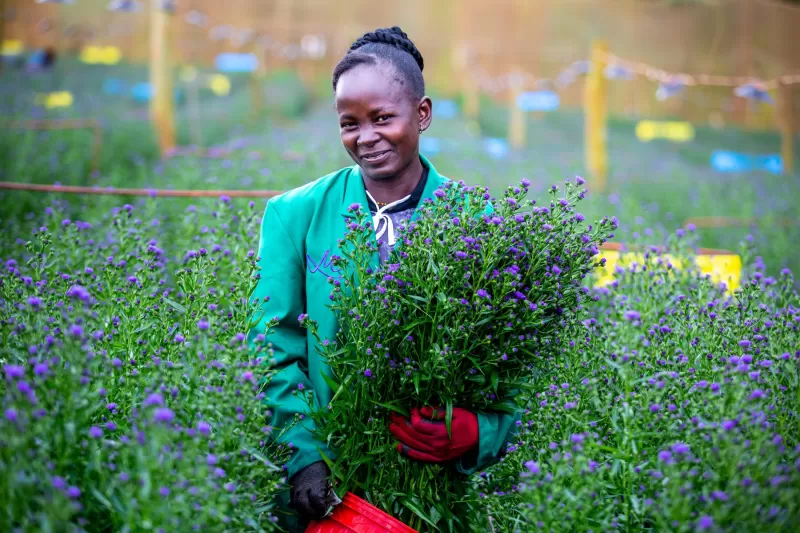
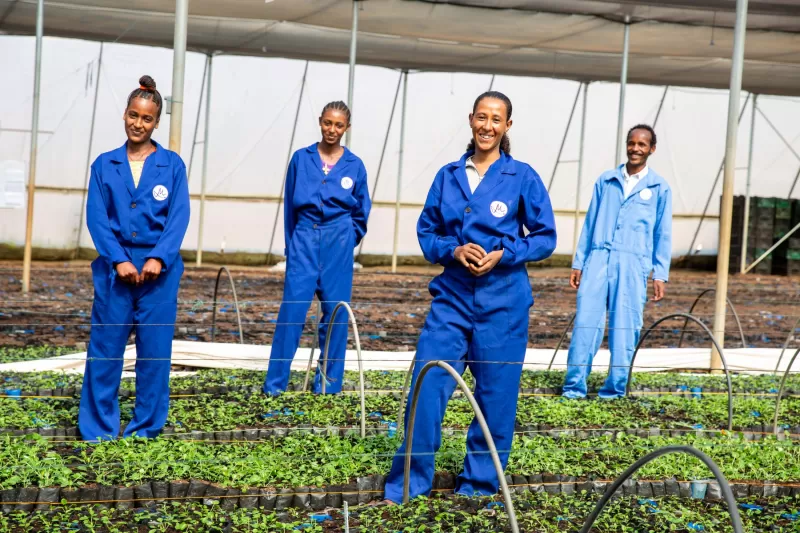
What does this People & Culture consist of?
Rob: ‘It will not only include the obvious areas of Human Resources, Talent Development and Culture, but also the Kaizen domain (Hamuka as we named our own adapted version of it). This might seem an unusual choice, but we are convinced locating this expertise within the People & Culture Cluster is the best way to keep it evolving. We foresee that ultimately the whole group will be working according to the Hamuka principles hence the leadership coming from the Group People & Culture Cluster.
Another reason for locating it here is that, like Human Resources and Talent Development, Hamuka too has its roots in our culture. So, it should be fed and nurtured from the people closest to this source.’
Kiki: ‘On that note, we have also linked ESG to this Cluster. In the previous years we found that environmental and social sustainability sits so close to our culture. Instead of working from outside in, assessing how we perform on the different areas of ESG, we prefer to work inside out more. Our ESG Roadmap will be aimed at strengthening the already existing initiatives and behaviours that proved to be complying with ESG requirements. It is not something we do, it is who we are.'
You mean ESG is like your Culture, something you ‘are’ instead of ‘do’?
Kiki: ‘We want everyone to contribute in making the company a little bit more sustainable every day – whether through major projects to reduce water and energy consumption or just small improvements like banning disposable plastics from the canteens. Essentially the road to enhance sustainability is driven throughout the company by everyone, everywhere and every day.’
Rob: ‘Sustainability is also about improving social conditions, such as setting up a medical clinic at every farm and ensuring employees can take home clean drinking water every day, but also by building schools or improving roads within the adjacent communities to our farms. This is something we have done naturally for the past decades.’
How is this people-oriented approach benefiting your business?
Kiki: ‘It has done and is doing so in many ways. Thanks to Hamuka (Kaizen) we have been able to double our production without having to increase the size of our production area or workforce. Thanks to our team of HR Officers at the farms we offer considerate and effective support and service to our people. They recruit, onboard and retain people effectively with minimal staff turnover which tells us people want to stay. With them staying, their knowledge and experience stays within the company too. And thanks to the current project of building a strong People & Culture Cluster we will increase the efficacy of the organisation, taking it to the next level.’
Rob: ‘We are rapidly becoming more data driven, learning to plan better and implementing our growing knowledge more successfully all through teamwork and horizontal learning. We are confident this will be very beneficial to our results. And more importantly help to build a sound business that is both people and profit oriented. These variables must go together as they feed each other!’
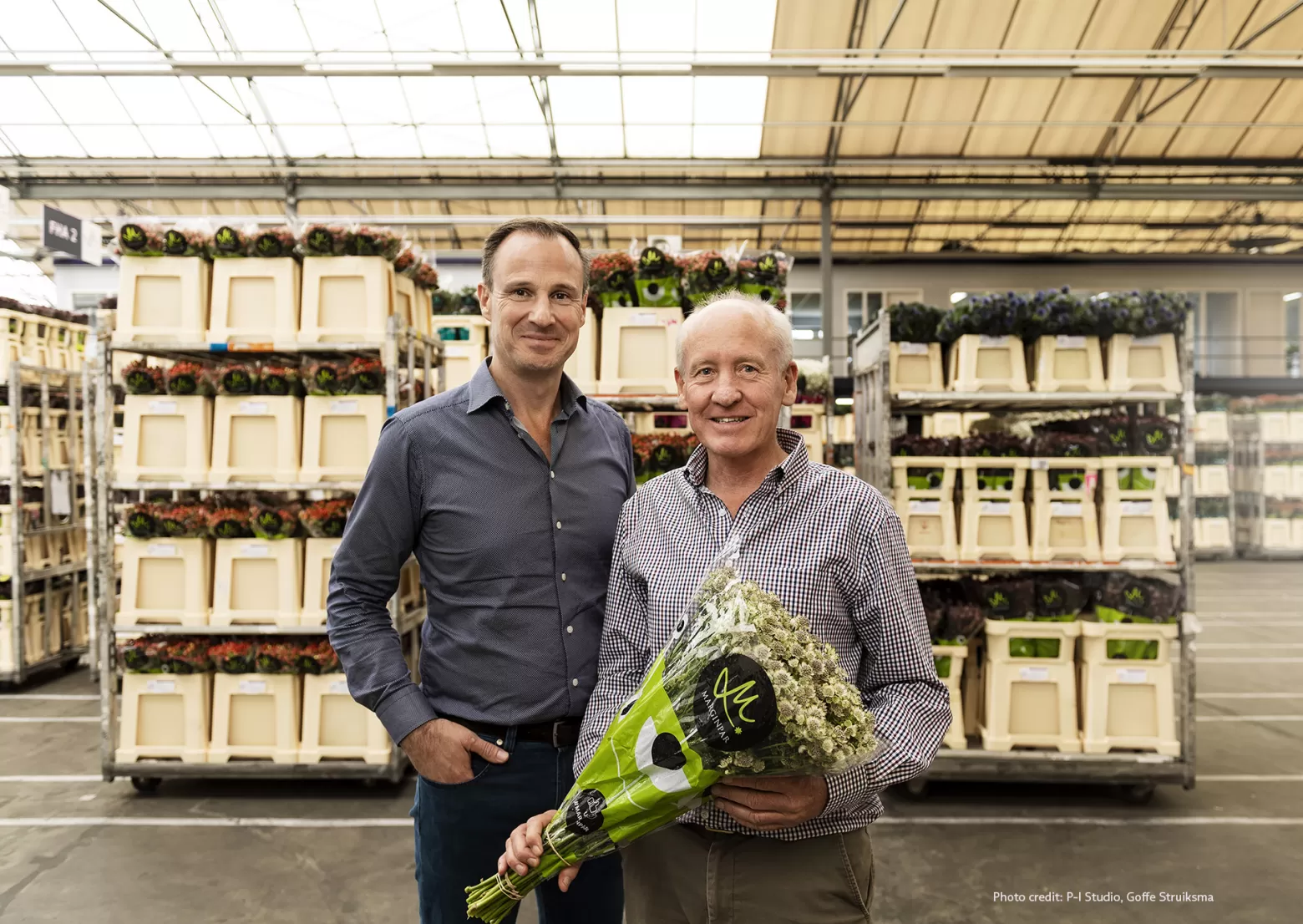
Left: Rob Koning, right: Richard (Kiki) Fernandes.
Photo: P-I Studio, Goffe Struiksma
And now you are looking for someone to lead this Cluster People & Culture?
Rob: ‘We are currently growing our leadership capacity because we are convinced the phase the Marginpar Group is currently in requires a different kind of leader to steer the daily operation with more structure and closer guidance than we as CEO’s have to offer. We started by hiring a Group Managing Director who is getting his feet under the desk as we speak. The next step is to recruit a mature and innovative captain for the Group People & Culture Cluster. Someone who is seasoned in HR, developing talent and knows how important thoughtful development of culture is. Who understands the impact of an involved and dedicated workforce and is experienced in applying state of the art structures to support, train and educate our people.’
Someone with a big heart for people and team development?
Kiki: ‘Correct. That someone we are looking for will primarily have the interest of the people at heart, secondly the performance of the company and the achievement of our company goals. We see someone who works with the various People & Culture teams to help them align their efforts and guide them in their quest to support the Marginpar people to the best of their abilities. And at the same time support them in their development both at individual and team level.
Rob: ‘We see a knowledgeable colleague to accompany the team on our journey of building a sustainable company. We make mistakes and improve on them; we learn and develop as teams. The ideal candidate should be able to adapt to this approach and show the same commitment we all have to support each other in achieving our organisational goals.’

